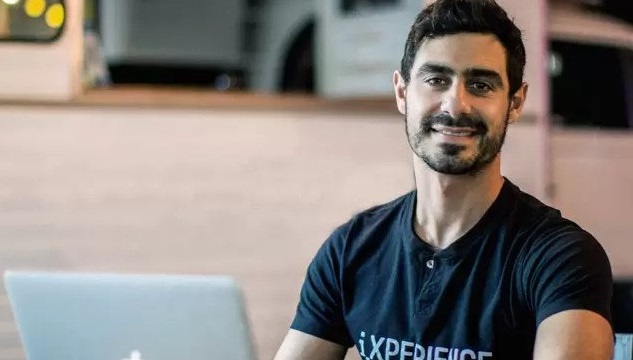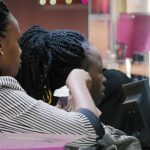We all have them. Those apps we open without thinking. Not because we need anything in particular, but because they feel… safe, in some…
How my startup pivoted in just three weeks to survive Covid-19

In early March, I was in California, visiting the campuses of some of the US’s best universities: Stanford, USC, UCLA and UC Berkeley.
My team and I were marketing iXperience’s study abroad and internship programmes. The year was going well: we were on track to host 400 or more students in five locations around the world.
Our product and entire brand revolved around the transformative power of travel, experiencing new cultures and stepping out of your comfort zone.
A week later, I was back in South Africa, disconnected from my team, scared for my parents, and confined to my home.
When Covid-19 hit, iXperience had to close its global campuses and refund 50% of students.It was pivot or die
We had to close our global campuses and refund around 50% of our students. Our projected 2020 revenue was exactly $0, and we were quickly running out of cash.
It would be a lie to say that we acted with certainty and confidence: what happened after was based on a lot of discussion, debate, and intuition.
The principles that our team stuck to, however, allowed us to not only survive but thrive. We acquired more customers than we previously projected and we are on track to grow our team.
There will hopefully be very few crises like this one in our lifetime. My intention in this article is to share some of the strategies and habits that we built that I believe helped stabilise our business and put us in a strong position for the future.
Face the financial reality without fear
Because the world was so uncertain, we had to map out many scenarios. What was the possible worst case? US shutdown, economic collapse, border closures?
We then mapped out the profit and loss forecasts for each of these scenarios.
We have always placed a premium on developing our team with robust tech and data analytics skills, which paid off in allowing us to create dynamic data modelling systems that distilled clear goals that we needed to achieve in different scenarios.
From there, we monitored metrics daily, updating our models as soon as we got new information. These models enabled us to make the best possible business decisions, quickly.
We realised quickly that cash was going to be king in this business climate. We analysed all of our expenses and cut costs at every possible line item in our budget.
We made hard decisions to cut salaries but using a thoughtful approach, where we protected our employees in the lower salary brackets.
We agreed with our staff that we would pay back the deficits at a time when the business was able to do so. This would be a board-level decision.
We ensured that we created a sensible refund strategy for our customers while maintaining the brand integrity.
Doing this required a very hands-on approach, to the extent that senior staff rolled up their sleeves and physically got on the phone with parents and students alike — in the end we were able to satisfy 98% of our customers.
Use the crisis to invent new ways of working
We completely reinvented our existing goal-driven system to adapt to the rapidly changing environment.
Broader quarterly goals were replaced with two-week sprints that allowed for a narrower focus on each goal and an increased ability to change focus.
We emphasised the fact that our dire situation required a new level of commitment from our team and entrenched this expectation into our culture — everyone was given the space to step up and was recognised for their contribution.
Communication was increased a hundredfold and we were not scared of the truth.
Suddenly being in a remote environment was a shocking change to our normal way of communication.
We stripped our existing communication channels down to their essentials, localising communication over fewer platforms to increase front-of-mind and team-wide transparency.
Leadership was encouraged to over-communicate to bolster information flow; there was no such thing as too many emails or messages.
Transparency was scary and very honest. Salary cuts, finances and student numbers were made transparent across the whole company.
When people were retrenched, we spoke about it honestly. We believed that we had to focus on building trust, and this could only be achieved by not hiding anything.
The staff must believe in your product and the impact it has on customers.
We reinforced this by highlighting the impact our product has had on our customers’ lives and ensured that our people knew that even though times are tough, the work we are doing is having a positive impact in the world. We even had video testimonials from alumni to foster motivation and bring home why we do what we do.
Build for the new reality
We’re not a large education company with a huge operation and cash reserves. But we realised that we could use our size and agility as a strength, to launch, market and build new programmes at a rapid speed.
While universities were still discussing how to take existing classes online, we completely revamped and optimised our programmes for the new remote world in a few weeks.
This meant we could focus on collecting more of what was truly important: data and customer insights.
We adjusted our marketing strategy and took advantage of the panic left by the slow decision-making process of universities to acquire 500 students for our programmes (now online instead of in-person), a 25% increase from our pre-Covid-19
projections.
In times of crisis, sitting and thinking might seem like a waste of time. But humans are most creative when they’re relaxed, having fun, and filled with a sense of possibility, not doom.
We took the time to listen to thought leaders we respected and to do our research on how the world would change. Get a good sense of new trends emerging and align your strategy with them.
The education system seemed to be (and still is) under immense pressure and we believe that the entire system is getting ready for a shift. Universities and students are being forced to learn online and new technology to enable this is emerging.
In positioning our products for that shift, we invited the entire team to join in the brainstorm and critique each other’s ideas.
This has the dual impact of strengthening the culture, giving everyone a sense that they were important, and reaffirming our mission, while generating useful insights for the product team to build upon.
Our new pivot, iX Remote, enables us to continue our mission to provide practical capabilities that help close the global skills gap. Covid-19 has forced us all to be more adaptable, open and receptive.
Our internships are now digital, giving students cutting-edge, real-life experience, which enhances employability. By pivoting, we have fortified our business with a blended physical and virtual model, which is built to scale and meet the demands of the new global education economy.
*Aaron Fuchs is the CEO of iXperience


